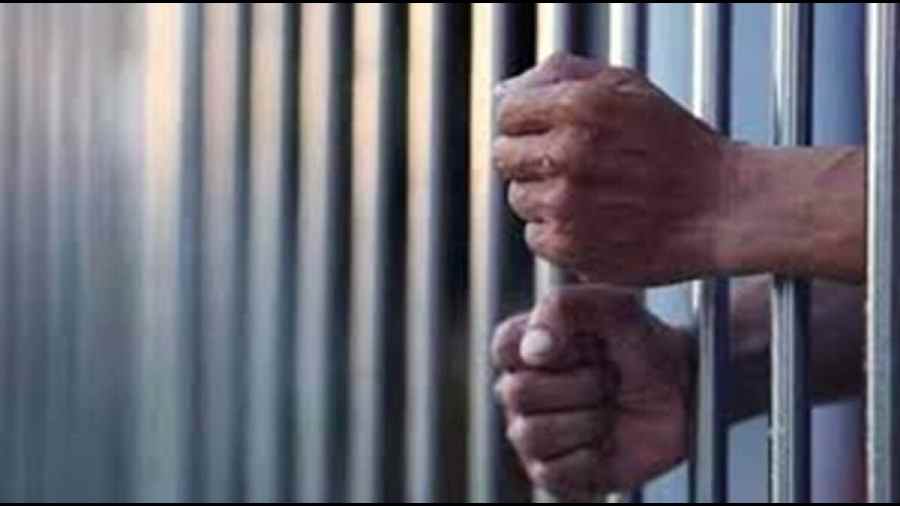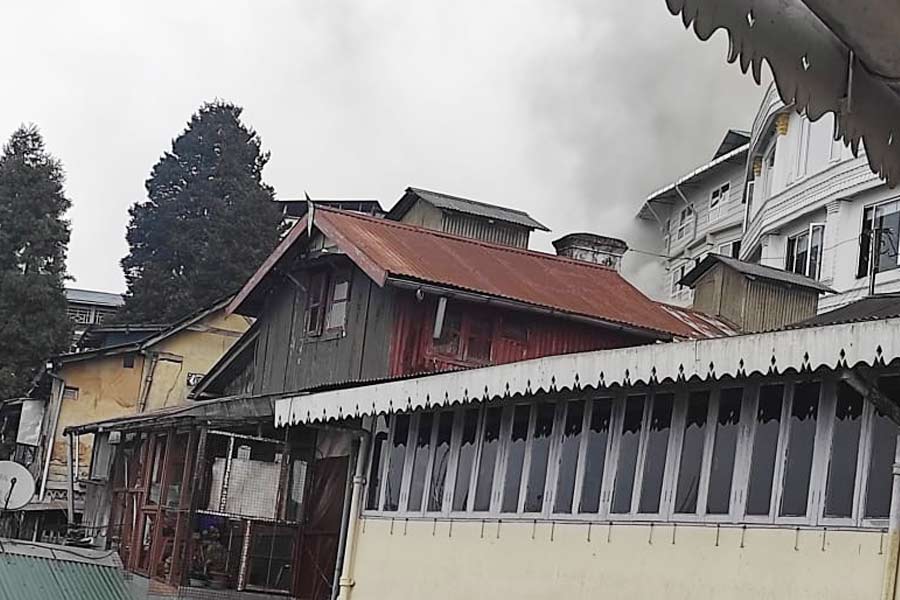A Mizoram court on Monday sentenced the state’s lone BJP MLA Dr Buddha Dhan Chakma and 12 other Chakma leaders to a year in jail for misappropriating development funds meant for the Chakma Autonomous District Council (CADC).
Vanlalenmawia, special judge (prevention of corruption act), Aizawl, had convicted the 13 accused on Friday and announced their sentencing on Monday, according to which they will have to undergo rigorous imprisonment (RI) for a period of one year under Section U/s 13(1)(d) r/w 13(2) of the prevention of corruption act, 1988.
They were also sentenced to pay a fine of Rs 10,000 each, in default of payment of fine, simple imprisonment for 30 days.
The prosecution had sought a sentence of three years and six months against the convicted for withdrawing a development fund of Rs 137.10 lakh as advance salary between 2013 and 2017.
A representation from the BJP general secretary to the then governor on 29.6.2017 demanding dissolution of the Congress-led council. This led to an inquiry by the deputy commissioner, Lawngtlai district, into the alleged irregularities committed by the council such as financial irregularities, illegal appointments, misuse of fund meant for implementation of developmental works as pay advance, among others.
Based on the DC’s report, the district council and minority affairs department in April 2018 directed the anti-corruption bureau to register a criminal case against all those involved. The FIR in the case was lodged in April 2018 and chargesheet filed in April 2019.
Besides the BJP MLA, who was a former chief executive member (CEM) of the CADC, the other convicted included five incumbent members of the CADC, including the sitting CEM Buddha Lila Chakma, and seven former members of the council formed in 1972 to work for the development of the community which has a population of around a lakh in the state. The CADC is at present headed by the Mizo National Front (MNF) which also rules the state.
The BJP MLA represents Tuichawng constituency. He was an elected member of the CADC from 2013 to 2018. Thereafter, he contested and got elected as a Congress MLA in last part of 2013 till 2018 from Tuichawng. He also became a minister in the Congress-led government but had to quit following sustained protests by students over an admission issue.
He later switched to the BJP, becoming its first MLA in the state in 2018.
In its 55-page order, the special judge said the accused persons violated rules in as much as the grants in the form of Special Plan Assistance (SPA) was “drawn in cash without the sanction” of the governor.
“This Court examined the accused persons u/s 313 CrPC. They denied that they abused their official position, but admitted that they had taken money as salary advance in different times due to necessity of their constituent people/medical treatment/domestic problem from CADC... It is stated by them that they had not obtained permission from Governor and also did not know whether financial rules are violated by them by taking salary advance from CADC. It is also stated by them that they did not know how they were paid advance salary. However, they admitted that they had made full repayment,” the order said.
The order said that the district council “cannot appropriate or re-appropriate” SPA at their “disposal” for any other object or purpose other than those for which these are sanctioned except with prior approval of the governor.
“It is also stated in the Rules that the District Councils shall not divert any funds sanctioned for a specific purpose or for any other purpose. However, in this case, the accused persons did not take prior approval while diverting the Special Fund for salary advance which is clear violation of the Rules,” the order said.
While praying for bail for the convicted U/s 389 (3) (i) of CrPC, the defence counsel said they will contest their conviction and sentencing Monday’s sentencing. Granting bail, the special judge said the bail bonds will expire after 90 days if the “applicants do not prefer appeal/revision before the appellate Court i.e. Gauhati High Court”.











